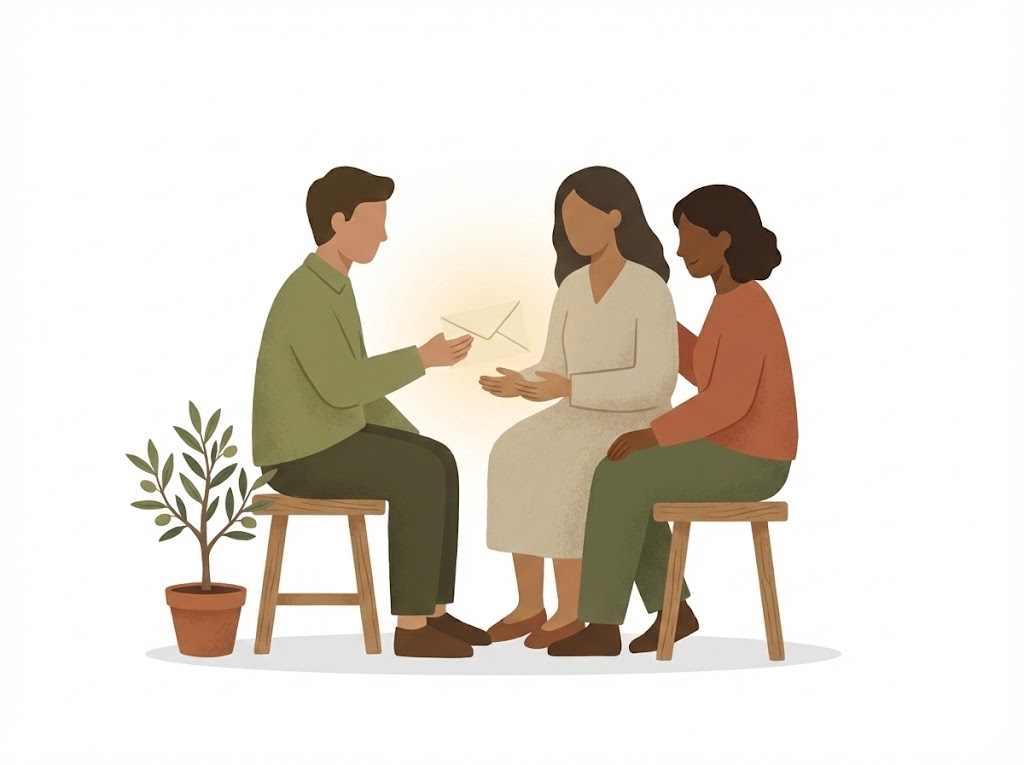Membership
If you have been coming to Quaker meetings for a while, you may be considering membership.

What is membership?
Membership is saying to the Meeting, and to the world, that you accept at least the fundamental elements of being a Quaker. Membership does not require a great moral or spiritual achievement, but it does require a commitment to Quaker values and practices.
Welcoming the new member means acknowledging their desire and commitment to follow the Quaker way of life. Coming into membership is a mutual process involving the individual on their spiritual journey and the whole Quaker community. It is the outward acknowledgement of an inward spiritual development, and a sense of belonging to the Religious Society of Friends.
Membership lasts for as long as you wish, and whilst you continue to be part of the life of the meeting. It does not need to be renewed.
When is the right time to apply for membership?
There are no absolute rules, but we can say it helps if:
- You have been attending meeting for worship regularly for a reasonable length of time, perhaps a year, and you feel in harmony with the worshipping community.
- The Society collectively maintains certain Testimonies as central to our faith. These include our Testimonies to Peace, Equality, Truth and Simplicity. It is not necessary to be deeply involved with every testimony, but awareness of them is important.
- You are able to accept the diversity of Friends locally and at the national and international level. The Religious Society of Friends comes from a Christian tradition, and is considered a Christian denomination, while many individual Friends in Britain do not consider themselves to be Christian and may come from other faiths.
- You have attended local and area business meetings, so you appreciate how these work. Attending the Yearly Meeting, or other gatherings and conferences of Quakers, can also give you a broader understanding of how Quakers deal with their concerns.
- Members take responsibility for running the Society, and are encouraged to accept, if offered, an appointment to one of the committees or rôles in the meeting. There is no membership fee, but financial contributions depend on what you feel able to give towards the cost of Quaker meetings locally and more widely.
- You have visited other meetings for worship, either in this area, or when you are away elsewhere. They can seem very different, but they are still part of the whole Society of Friends.
How to apply for membership?
As a first step, we recommend you speak to someone you trust in your meeting – ideally someone who is themselves a member. This first step needn’t be overly formal, just a conversation! Then – when you are ready to apply, an application for membership can be started in several ways. You can write to the clerk of London West Area Quaker Meeting directly, although at Westminster it is often more helpful to send your application to the clerk of Pastoral Friends. This need not be an elaborate letter, though you may like to mention your reasons for applying. It is enough, however, simply to say that you wish to apply for membership.
The normal practice following the application is to be visited by two existing members appointed by Area Meeting. This can take place in your home, the Meeting House, or any location of your choosing. Many Friends report that their “visit” is the best part of becoming a member. It is no an examination, but rather an opportunity to discuss with other Quakers what membership of the Society means to you, how you came to Quakers, and why you feel it’s now time to become a member.
Your visitors will then write a short report, which is sent to consideration by the Area Meeting to agree your membership. If it is agreed, you will then be welcomed into membership as a member of the Society of Friends!

Finding out more
In the meeting
Elders and Pastoral Friends are there to help if you would like to discuss things, including membership. There is a list of them here.
But you do not need to speak only to Elders and Pastoral Friends. Anyone in Membership at Westminster or any meeting would be happy to discuss with you!
Excerpts from our Book of Discipline
“Our sense of community does not depend on all professing identical beliefs, for it grows from worshipping together, knowing one another, loving one another, accepting responsibilities, sharing and working together.” Quaker Faith and Practise, 10.03
“How can we make the meeting a community in which each person is accepted and nurtured, and strangers are welcome? Seek to know one another in the things which are eternal, bear the burden of each other’s failings and pray for one another. As we enter with tender sympathy into the joys and sorrows of each other’s lives, ready to give help and to receive it, our meeting can be a channel for God’s love and forgiveness.” Advice and Queries, 18
“Do you give sufficient time to sharing with others in the meeting, both newcomers and long-time members, your understanding of worship, of service, and of commitment to the Society’s witness? Do you give a right proportion of your money to support Quaker work?” Advice and Queries, 20